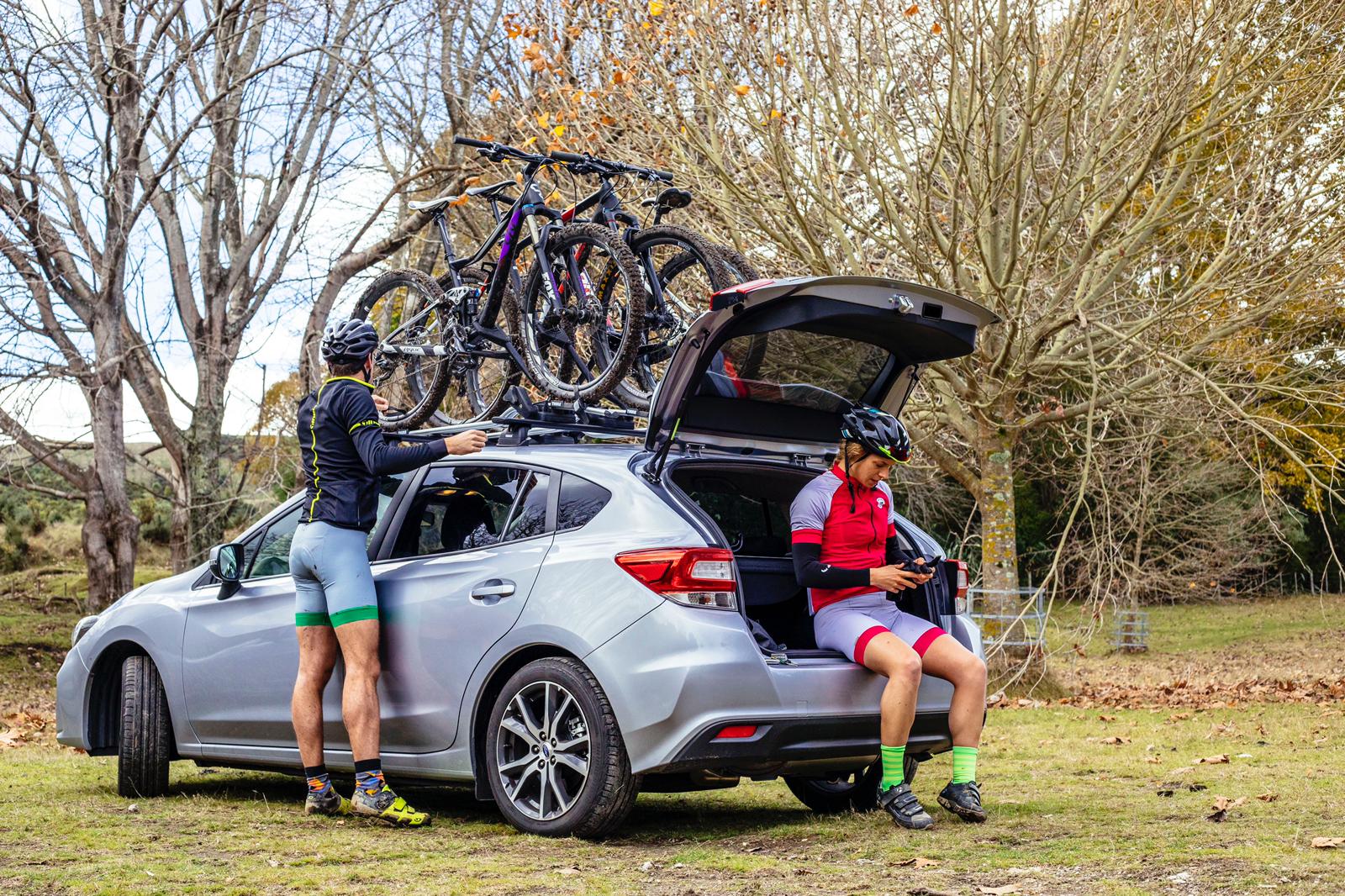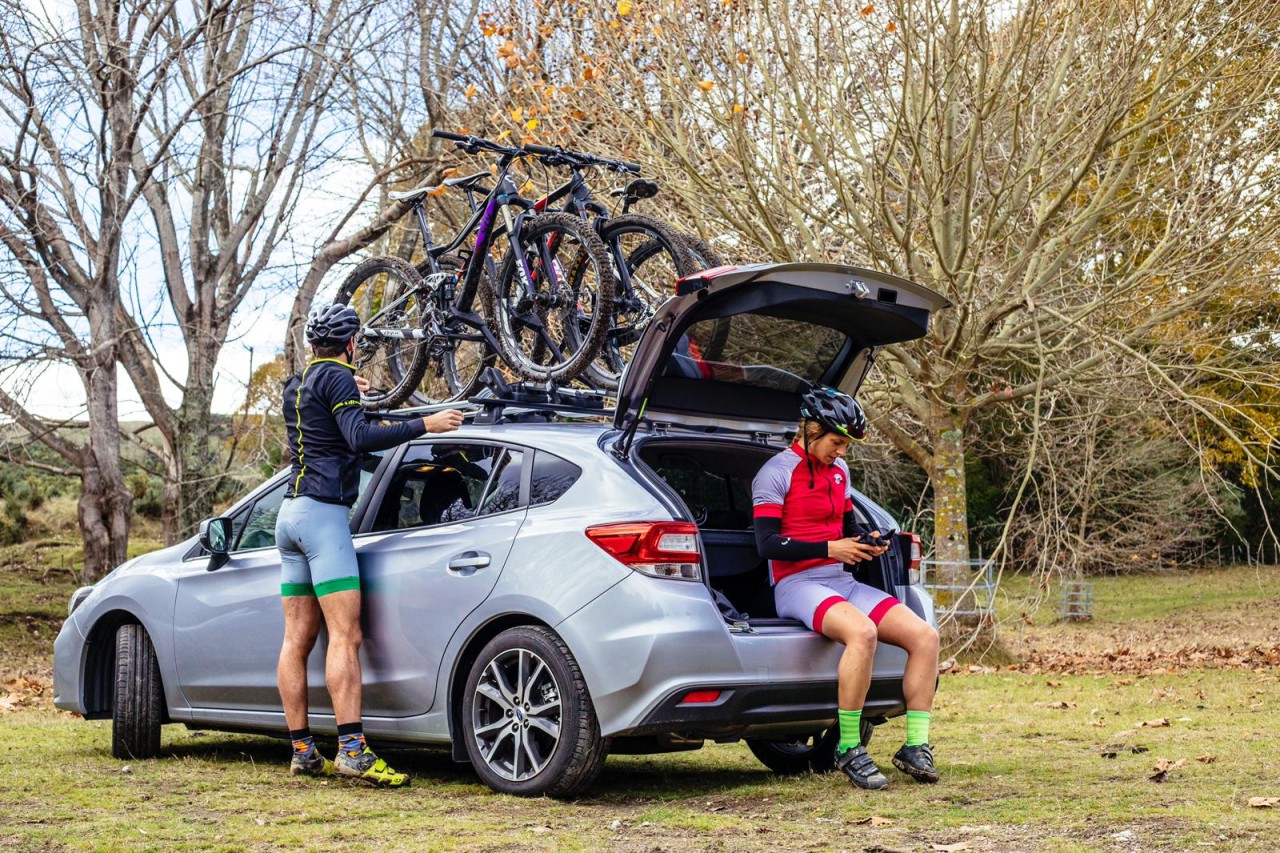A focus on mental health and taking the time to look after yourself is more important than ever, as our lives continue to be filled to the brim with work, family, and other commitments. Researchers have found that at least 30 minutes of moderate intensity physical activity on most days of the week can have mental health benefits, particularly for depression and anxiety. Physical activity is also extremely good for reducing stress*.
At Subaru we recognise the importance of this and the need to set aside a little bit of time in your day to look after you mental wellbeing by getting amongst the fresh air. Aside from the obvious physical benefits of exercising and keeping fit, the mood boosting benefits of exercise are massive. They leave us with a sense of accomplishment and purpose after completing a work-out. Exercise is also a great way to connect with others, make friends and get some fresh air into your day.

To raise awareness of this for World Mental Health Day, we asked our wellness ambassador Hannah Wells - who balances training and racing as a professional middle-distance triathlete, with working as an engineering research fellow - for her top five tips about staying active for mental health benefits.
Hannah might seem like a super woman with the load she juggles but these recommendations are for anyone and everyone who wants to get up off the couch and do something to get those post-exercise endorphins flowing! We hope these tips will help keep you motivated to get out there and clear the mind this World Mental Health Day.
1. Join a community
Join a local run group or take part in a local Parkrun event. If running is not for you, take up yoga or join a gym. There are plenty of group options out there and if those options aren’t easily accessible to you, online groups are an excellent way for people to ask questions and find motivation and support. The online groups I’m personally part of include Fitter Radio Coffee Club and Women For Tri – both of which are fun and friendly.
2. Do it with a friend
Meeting up with a buddy holds you accountable, particularly on those days where motivation might be lacking, and of course it makes it a lot more fun. Make a deal with a friend that when you’re meeting for a catch up and coffee, you’re going to go for a walk first. If you find joining a group exercise environment daunting, ask a friend to go along with you. Exercising with a friend allows you to challenge each other, encourage each other, chat through any problems you might be having and have a few laughs along the way.

3. Plan ahead, build exercise into your schedule and do it in the first half of the day
Make exercise and getting outside a priority. I find my motivation levels are higher in the first half of the day and often if I don’t exercise then, it gets harder to fit it in later. Recognise your ‘best’ time of the day to exercise and take advantage of that. Short on time? Start a workplace lunchtime walking group or hold a “walking meeting” with colleagues; make exercise part of your commute to work or even just wake up 15 minutes earlier to squeeze in a short strength workout at home. If you've got a little one who's an early riser, take them out for a sunrise walk. Everything counts!

4. Start small and build slowly
The key to sticking to a routine is to make it realistic and sustainable long term. That means taking things slowly. Start with short daily walks or a few minutes basic body weight exercises, and over time build up to longer or more intense activities like jogging or HIT (high-intensity training). Be patient - building fitness and adapting your daily routine to fit in more activity will take time.
5. Keep a diary
Start writing down your daily activity. It keeps you honest and is a great motivator when you can look back and see how many activities you have completed in the past week, month or even year. Using a step counter is a great way of doing this as well, but if yoga or cycling is your choice of activity a step counter won’t recognise them, so it might be worth logging those activities elsewhere too. There are plenty of awesome apps out there now, like Strava, Fitlist, GarminConnect that help make activity recording simple. Or you can just go ‘old-school’ and keep a written log.

Subaru of New Zealand supports Hannah Wells, professional triathlete and research fellow at Massey University. Hannah uses her Subaru XV to help her escape to her favourite spots around Tauranga to spend time training and looking after herself, enjoying the benefits of what physical activity does for her mental health.
For more information about mental health and other resources, visit https://www.mentalhealth.org.nz/
*Source: Mental Health Foundation of New Zealand
